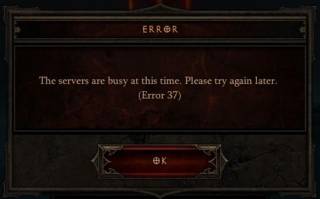I don’t like always-on DRM. I know that’s not a particularly original opinion, but as much as this point gets made, always-on DRM has remained a significant element of the games industry, and people both inside the industry, and more surprisingly, outside of it are still defending the practise with some very poor reasoning.
The most common argument for always-on DRM is that everyone has all their gadgets constantly connected to the internet these days so why does it matter? We have wi-fi in our homes, and high speed internet connections have been widely available for years, so if everything else is always-online, why shouldn’t our games be? The problem is these ideas don’t line up with reality. When we as individuals are constantly connected to the internet and have lots of other people around us who are, it’s easy to project that idea out to the general public and think that’s how it is for everyone, without looking objectively at the situation.
The Connectivity Barrier
Getting precise figures on how many people have internet access is difficult, but a survey from the George Washington University in 2010 concluded 29% of people in the U.S. didn’t have internet access in their homes. Granted, if you don’t have an internet connection in your home you’re less likely to be the kind of person that plays video games, but already we can see the always-on myth dispelled, and companies making their games unplayable to almost a third of people doesn’t exactly seem like a good place to start. However, even when people do have some kind of connection, it may be unreliable, work via phones, not be able to support multiple devices at the same time, etc.

In 2012 the FCC reported that 119 million people in the U.S. are without access to high speed internet, that is an internet connection with a minimum of a 4 Mbps download speed, and a 1 Mbps upload speed. 19 million of these people just don’t live in an area that supports broadband internet. All you have to do is bring up DRM on online forums and see that even among people clearly committed to video games, there are plenty of anecdotes of how they’ve been in living situations where they just couldn’t get a reliable internet connection. There are plenty of regions around the world, especially rural ones, where there’s no option to be always-on, and there are plenty of people who even with high speed broadband can’t guarantee a connection that’s entirely fault-free, I was in that position for years.
Despite being the country where many of these “Everyone is perpetually connected” arguments come from, and the western country that is the primary target of most video games, the U.S. has actually been shown in the past to be lagging surprisingly far behind many other countries when it comes to providing proper internet access, and there are many countries even worse off. If you’re travelling or away from home you often can’t guarantee an internet connection either. Then there’s the problem that many ISPs place download caps on connections. If you’re one of the people in this situation you could well be dissuaded or limited from playing your always-on games.
There always seem to be a large number of people who expect certain aspects of the world to move forwards at a speed that is unrealistic. There are people who think print media is dead and that discless consoles are going to appear in a flash, and from a similar mentality comes the idea that we’re already living in an age where everything owned by everyone is connected to the internet at all times. It would be wonderful if we were living in this perfect world, but that’s just not the case.
Servercide
The problems don’t stop at home though, and you probably know what’s coming next. Games that rely on large numbers of interconnected servers to run have had a history of network trouble at launch, but always-on games specifically have faced a couple of recent events that have seriously called into question the ability of even the biggest companies in the industry to support these systems. It's been so done to death I know you don't need me to explain what was wrong with the SimCity launch, but the fact that wrapped up in it was possibly the biggest advocator of DRM in the industry is especially damning.

The Diablo III situation also reflected very poorly on always-on DRM advocates, not just because even a large company couldn’t provide customers the product they bought for such a long period of time, but because Blizzard specifically should have been the last people to have server trouble. They’re the guys who run Starcraft II, a game with a hugely dedicated online community, and World of Warcraft, an MMORPG that’s supported a player base of upwards of 10 million, but even these networking geniuses were chillingly susceptible to network issues.
Heck, remember the Playstation 3 crisis from 2011? Despite Sony being one of the biggest competitors in the games industry, it didn’t stop the 77 million users of the Playstation Network being forced offline for about a month due to a cyber-attack. Imagine if that had been the DRM servers for a game or games. These are just a few examples of where things have gone very wrong in recent history, but we know that there are constantly hiccups happening with the servers for various different games all the time. Again, I wish we lived in a world where companies would always manage to keep their game servers online for everything, and maybe one day we will, but right now we’re not. In some ways this inevitability of server-side issues is worse than many users having connection issues on their end. It’s one thing to sell a product that a lot of people know they can’t use, and another to sell one that users justifiably think they can use but then breaks on them. I think that’s the point where it’s not over-the-top to start talking about breaches of consumer rights.
We also know that these DRM servers can’t last forever. There have been plenty of technological systems seriously hurt by a lack of planning ahead, and we’ve seen multiplayer servers for even relatively young games shut down. In five, ten, or twenty years how many DRM servers can companies guarantee will be running? Not only would it be very disappointing to have your games one day stop working, but if we have a number of prominent games come out now which use always-on DRM and those servers go out, that is going to have a seriously negative impact on the “retro gaming” scene in the future and is very bad for the preservation of our medium.
Empty Advantages
Some have tried to argue that having customers be always-online is beneficial to them because it more readily provides them with useful services. This was the position of id Software employee Tim Willits who used the example of players being able to receive updates without rebooting their game to try and demonstrate the advantages of always-on, but I can’t see any sense in this argument. For those who genuinely want the advantages of being online and are able to connect to the internet, they can have their game always connected to the internet regardless of whether it contains always-on DRM or not.
The DRM doesn’t help those who want those online features be any more online, all it does is exclude those who can’t or actively don’t want to maintain that kind of connection. In fact the default state of many, if not most games these days, is to go online by default, but run offline if an online option isn’t available. Why would you actively go against what customers want and can accommodate, to provide no advantages to the people who have chosen to use your online services? Willits also implied something I’ve seen said more than once, that it’s only a “few” people who object to always-on DRM, but we know that’s not the case. I’m not trying to beat up on Willits specifically here, but I think his points paint a good example of the bad ideas that often get thrown around by always-on supporters.
The Debate
For as critical as I am of always-on DRM, it is at least an attempt to tackle a more serious issue that is a problem for the games industry. I don’t want to start a debate on the ethics of piracy, but I think we can all agree on one thing; that there are a significant number of people out there who obtain games through piracy instead of paying for them, and that a significant amount of money that would otherwise go to the people who make and release games is lost that way. Being people who quite like playing video games this is a problem for us.

It’s sometimes said in these debates that companies have the right to put DRM in their games and prevent piracy, but that’s often a kind of non-sequitur argument, very few are arguing that companies don’t have the right to do that. As I said earlier we may start reaching rights issues when always-on DRM prevents purchased games from being playable, but even if a company is working clearly within their legal rights, that doesn’t mean that the products they’re making are any better.
There’s a constructive debate to be had about how anti-piracy measures we may not like could be a good idea if it leads to companies being able to take more risks and put more money into their games. These debates are difficult, because being able to provide objective figures for these discussions seems like an almost impossible task, however, no one should be under the impression that this kind of DRM doesn’t negatively impact and provide major barriers to entry for some consumers. We must also remember that requiring a constant internet connection is far from the only way to combat piracy.
Always-on DRM is a technology which shuts many gamers out from games, makes things harder for certain end users, and potentially leads to purchased games being unplayable for periods of time and given a finite lifespan. A poor argument is often made against DRM; that because it doesn’t prevent piracy entirely, that there’s no point in it, but it doesn’t need to prevent piracy to be useful, it just needs to limit it. However, this limitation has often meant that pirates get a superior product, while loyal customers are punished. If always-on DRM is to be justified I think you need a hell of a good argument.
The Good News
We may seem doomed to just be delivered an increasing and endless number of titles that require us to be constantly wired-in as time goes on, but there is a brighter side to all of this. We can remember that despite there being a major issue with some games using always-on DRM, that a huge number of companies still just don’t use this technology in their products. We all know that the companies really pushing this technology are a small number of players in the industry who have quite a lot of power. However, even a couple of these companies have started to back off and admitted that DRM is not a viable solution to piracy.

While I don’t think they ever got the credit they deserved for it, in 2011 Ubisoft, who had up to that point been including always-on DRM in all their PC titles, stopped using always-on DRM in their games entirely, citing the fan outcry against the practise as the reason. Even EA labels president Frank Gibeau has come out and said DRM is a “failed dead-end strategy” and declared “it's not a viable strategy for the gaming business”.
These could just be empty words. Blizzard denounced DRM in 2010, only to go on to create the Diablo III disaster. From what Gibeau said about SimCity it may also be that EA will increasingly try to make games online-centric so they act as their own form of always-on DRM, similar to the way they tried to push online passes by cramming a bunch of multiplayer modes into games. Still, it shows that even a company like EA no longer want to be affiliated with this kind of technology. I think that’s especially shown through in how much they’ve recently tried to distance themselves from accusations that they forced always-on DRM into SimCity.
I sincerely hope that in the future we can see companies find a way retain profits without hurting their loyal customers, and for now if you disagree with the use of DRM, keep making noise about it, because despite what some have said, it’s obviously making at least some difference. Thanks for reading.

Log in to comment